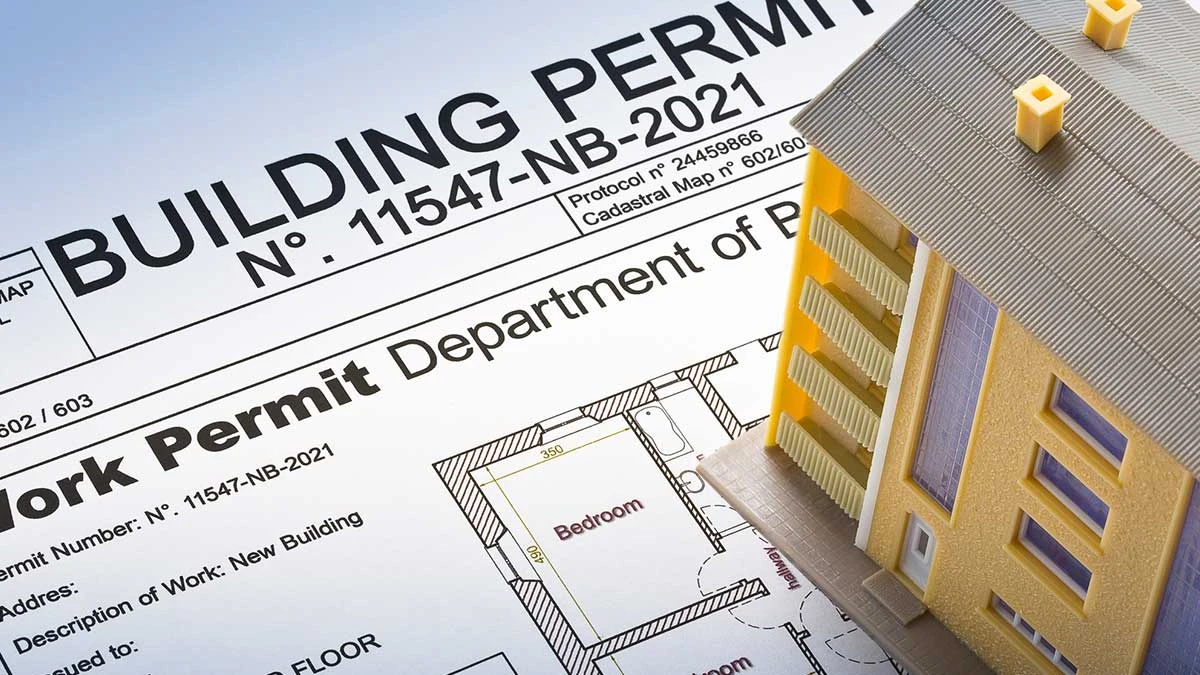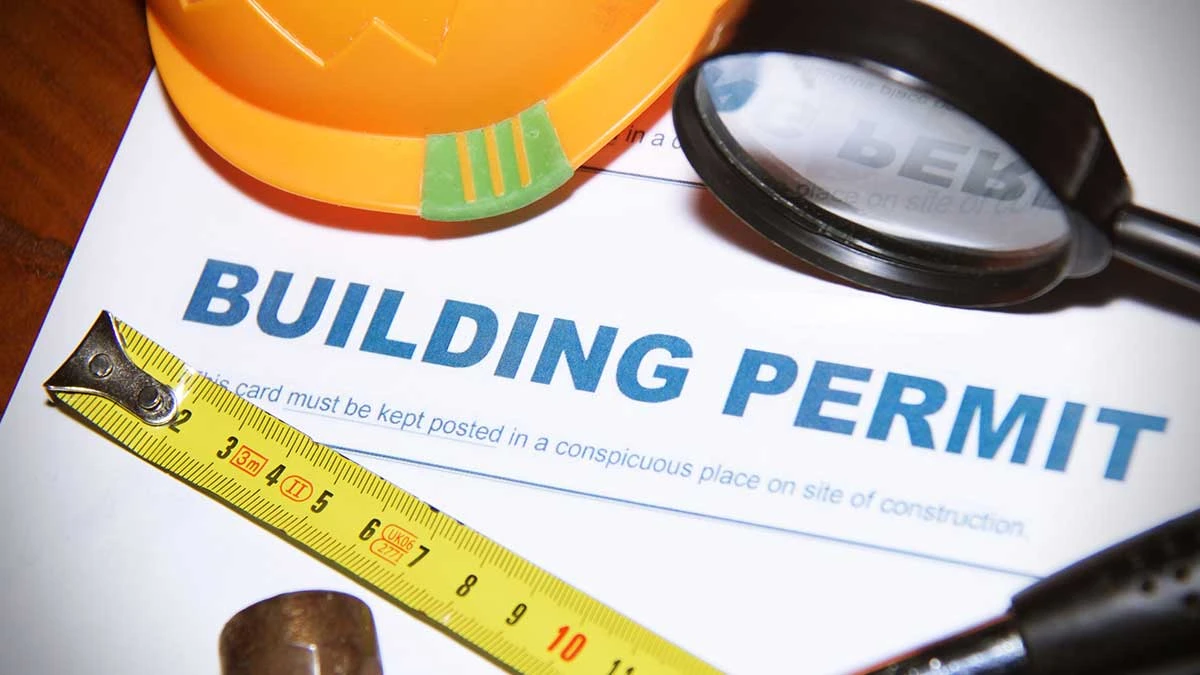Ask Permission, Not Forgiveness!
Obtaining a permit for home renovation or modifications can be time-consuming and often confusing. However, this is not a reason to avoid the process altogether. The only way to protect your investment and make your home a safe and comfortable space is to obtain the necessary permits. Consult with your local A&E expert on the process. It will save you time and stress and result in a safer, well-designed home for your family.
Understanding the Importance of Building Permits
A building permit is a crucial authorization required by local building departments before commencing any construction, remodeling project, or structural modification work on your property. These permits are mandated by building regulations established by municipal authorities to ensure building safety and structural integrity.
Do I need a permit for a house renovation?
As a general rule of thumb, any structural work to your home will require a permit. However, this differs according to your local building council and its planning bylaws.
Many different factors play into permits being issued by your local jurisdiction. For instance, if you are choosing to paint your house, do maintenance like wallpapering, install hardwood floors, perform minor electrical repairs, install new countertops, or replace faucets, that is likely not a concern of the laws of the local jurisdiction but can be regulated by your HOA.
If you want to remove a wall to open up your floor plan, you should consult a structural engineer. The local building department will require structural modifications to be designed or overseen by a Licensed Structural Engineer.
Understanding the Permitting Process
Depending on your local building council, the permit process for your remodeling project or home improvements could be littered with red tape. If you plan a commercial activity from your home or put up a second dwelling, you may even require separate permits. It’s best to consult your local A&E expert and get your ducks in a row early on.
Please note: each jurisdiction varies, and each city/county has different codes to follow.
Some works where municipalities require a permit:
- Removing a wall
- Remodeling projects /additions affecting the existing support system
- Demolishing a structural portion of the house
- Changing the use of a room (garage to bedroom)
- Adding egress windows to structures
- Electrical circuits/ Electrical work
- Altering, adding, or removing a ventilation system.
- Adding rooms or second dwellings (Including ADU’s)
- Most large projects
If you are changing the house’s ‘bones,’ you should consider hiring a structural engineer to inspect the modifications you want to make.
Your local permitting office may require a licensed structural engineer to oversee or modify your design. The structural engineer has specialized training and knowledge about changing the structural aspects of homes. The state licenses them to follow building regulations and can assist in obtaining the proper permits applicable to your local codes.
Some works are less likely to require a permit.
Work that doesn’t require a Permit:
- Minor electrical repairs
- Removing existing plumbing
- Small home improvements (Although it’s best to consult an expert if you plan on changing any structural elements or electrical work)
Ensuring Compliance with Building regulations
Structural engineers calculate the forces required to hold up a structure, environmental factors, and the materials used to build. A home’s load path can be very complicated, and it is critical for a professional to help obtain the proper permits.
How long does it take to obtain a building permit?
Building codes vary depending on your region. Most municipalities will take up to six weeks to issue permits; however, several factors can impact this timeline. It’s best to consult an architect or structural engineer to get clear guidance on your specific project requirements.
So why do you need a permit?
In the aftermath of the 2010 earthquake in Port-au-Prince, Haiti, the devastating consequences of not enforcing permit requirements were starkly evident. Haiti’s lack of structural regulations led to widespread devastation, highlighting the importance of implementing and adhering to permitting laws. Obtaining a permit isn’t just about following rules; it’s about safeguarding lives and property against the potential ravages of natural disasters.
This picture poignantly reminds us why obtaining a permit is essential. By adhering to building permit requirements, we can mitigate the impact of natural disasters and prevent unnecessary loss of life and property. Governments and local jurisdictions have enacted permit laws to create safer environments for their citizens, underscoring the critical role of permits in ensuring public safety.
Moreover, obtaining a building permit is crucial for protecting your investment. Modifying structural elements of your home with proper licenses can significantly increase the value of your property. While obtaining a permit minimizes your total construction costs, you safeguard the value of your home and save yourself from potential headaches in the future.
“The building official is at this moment authorized and directed to enforce the provisions of this code.” This directive underscores the importance of enforcing codes and permit requirements to ensure compliance and safety in construction projects. Building officials play a crucial role in upholding these regulations and ensuring construction projects meet the necessary standards.
Obtaining the required permits is essential when undertaking home improvement or remodeling projects that involve adding new windows, modifying bearing walls, or constructing decks and balconies. Failure to comply with local codes and ordinances can result in fines, penalties, and homeowner’s insurance coverage complications. By following the rules and obtaining permits, homeowners can protect their property, finances, and the safety of their families.
“The building official is now authorized and directed to enforce the provisions of this code. The building official shall have the authority to render interpretations of this code and adopt policies and procedures to clarify the application of its provisions.”
“The building official shall receive applications, come review construction documents, and issue permits for the erection, an altercation, demolition, and moving of buildings and structures, inspect the premises for which such permits have been issued, and enforce compliance with the provisions of this code.”
-International Building Code Book, 2015
Since most homeowners lack structural engineering knowledge, they are required to submit a design to the local city building administration to ensure it follows the code. Depending on the building official, the design you submit will need approval by an engineer, may need to show calculations for each modification, and must abide by the city’s code.
Consulting Experts for Your Permitting Needs
The jurisdiction governing the home, the homeowner, and the engineer have a common goal—the safety of the home’s occupants–you and your family. To ensure the safety and stability of the project, you require a permit that proves an engineer and a technician have reviewed the plan in full.

What requires a permit? Common Permitting Questions Answered.
Frequently asked questions about permitting include the need for permits for various projects, such as home renovations, additions, or remodeling projects. Understanding the permitting requirements for your specific project is essential for avoiding costly mistakes and ensuring compliance with local regulations.
Q: What happens if I build without a permit? A: Undertaking construction work without the necessary permits can lead to significant consequences and complications. If you proceed with building without obtaining the necessary permits, you risk facing legal, financial, and safety issues.
Q: Do I require a permit for structural modifications? A: Structural modifications such as removing load-bearing walls or adding an accessory dwelling unit typically require a permit.
Q: What about minor repairs or cosmetic upgrades? A: Minor repairs or cosmetic upgrades like wallpapering or installing hardwood floors may not require a permit, whereas adding a new window or removing an existing window will require plans drawn to ensure compliance.
Q: What steps should I take if I build without a permit? A: If construction is carried out without permits, it’s crucial to have the work assessed by a qualified structural engineer. Subsequently, as-built drawings must be submitted to the local planning authorities to assess regulation compliance. Failure to obtain permits can result in fines, penalties, and legal consequences.
Q: Do I need a permit for a home improvement project? A: Yes, if your renovation involves structural modifications or changes to the “bones” of your house, such as removing load-bearing walls, you will likely require a permit. Minor renovations like replacing cabinets or countertops may not require a permit, but it’s essential to check with your local A&E expert. Different rules apply in different jurisdictions, and separate permits may be required for different types of work.
Q: What about additions to the home? Adding any structure to your home, including room additions or building an accessory dwelling unit, requires permits. It’s essential to comply with zoning regulations, HOA requirements, and other local ordinances in addition to obtaining building permits.
Q: Is a permit necessary to finish my basement? A: Most cities require permits for finishing basements, especially if the project involves significant structural modifications or changes to plumbing or electrical systems. Ensuring compliance with the code is crucial to avoid issues when selling your home.
Q: What about remodeling my bathroom? A: If your bathroom remodel involves structural changes, rerouting plumbing or electrical systems, or altering the original floor plan, you will likely need a permit. Cosmetic upgrades like replacing fixtures may not require permits but always check with your local building department.
Q: Do I need a permit to build a deck? A: Yes, building a deck typically requires permits, as there are specific requirements regarding height, square footage, and structural integrity. Please obtain deck construction permits to avoid fines that may complicate future home sales.
Q: What about building a shed or fence? A: The need for permits for sheds and fences varies depending on factors such as size, location, and local regulations. In most cases, larger sheds and sure fences require permits, so checking with your building department is essential.
Q: What should I do if I need clarification on whether I need a permit? A: If you need clarification on whether your project requires a permit, it’s best to consult a professional, such as a licensed contractor or structural engineer. They can assess your project and help you navigate the permitting process to ensure compliance with local regulations.
What Happens if I Built Without a Permit?
Undertaking construction work without the required permits can lead to significant consequences and complications. If you proceed with building without obtaining the necessary licenses, you risk facing legal, financial, and safety issues.
The homeowner’s insurance company may not cover any damages to a property where illegal works have been undertaken. This includes plumbing and electrical work, which have been the downfall of many homeowners.
Assessment by an Engineer and Submission of As-Built Drawings
If construction is carried out without permits, it becomes imperative to have the work assessed by a qualified structural engineer. The engineer will evaluate the construction to ensure its safety and structural integrity. Subsequently, as-built drawings must be submitted to the local planning authorities. These drawings depict the construction as completed and will require a final inspection by your local building inspector to ensure compliance.
They are essential for assessing compliance with regulations.
Potential Changes and Additional Costs
Submitting as-built drawings may reveal discrepancies or non-compliance with building codes. Consequently, the local planning authorities may require modifications to the completed work and multiple inspections from various professionals.
These modifications could entail structural alterations, changes to building materials, or other adjustments to ensure compliance. Implementing these changes may result in additional costs, including expenses for hiring contractors, purchasing materials, or resubmitting permit applications.
Fines and Penalties
Local authorities can impose fines for construction undertaken without the necessary permits. Joint remodeling projects often become nightmares without a license.
Compliance is Key
Given the potential legal and financial consequences of building without permits, it is crucial to prioritize compliance with permitting requirements from the outset. Obtaining permits ensures construction projects meet safety standards, legal regulations, and building codes. By adhering to proper procedures and consulting with your local A&E expert regarding what requires a permit, you can save time and money with a minimal impact on the total cost of your home remodeling project.






